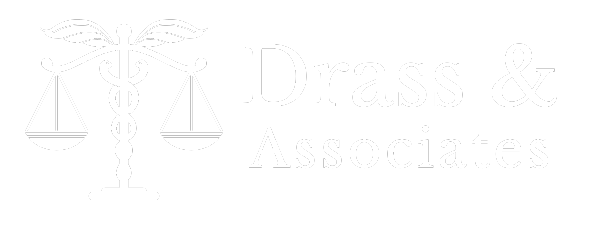Peer support specialists can provide hope and motivation for people seeking treatment. When people see others who are successfully recovering from mental health challenges, it can give them the strength to believe that they can do the same. In addition, peer support specialists can help people feel connected to others who understand what they are going through. This can be especially important for people who feel isolated or alone in their illness and/ or addiction as well as the treatment process.
The functional benefits of Peer Support Services include:
- Distinctive support exploring and securing enhanced access to and engagement in prevention and treatment services
- Versatility and cost effectiveness of peer support personnel for services providers
- Unique and specific cultural competency for inclusion of underserved populations in recovery focused forums
The certified recovery specialist is positioned to positively explore and explain professional treatment interventions, such as use of addiction medications, that support standardized treatment in ways that relieve skepticism and promote adherence. “Common functions of Peer Recovery Support Services include facilitating and supporting patients’ engagement with SUD treatment and transition between levels of care (e.g., between inpatient and outpatient programs), in addition to connecting patients with community based recovery support services and mutual-help organizations in ways not possible for conventional treatment providers who are bound by ethical considerations like not forming dual relationships with patients (Valentine, 2010; White and Evans, 2014).
More meaningful and thorough assessments and engagement of individual consumers is achieved by including peer support personnel in the treatment planning process. Those with lived experience who have also participated in specialized training, e.g., motivational interviewing, are differently attentive to and detailed in interviewing the mental health consumer and in hearing a cue or prompt to ask follow up questions and then supporting identification of person-centered, strengths-based treatment objectives. Peer Support staff are vital in advocating for patients while also educating professional interdisciplinary treatment team members to answer the questions about the who, why, how, and what the acquired information means for the client. This more specific clinical information and goal identification improves outcomes as it assists in promoting more extensive time and involvement in medical treatment as well as decreasing unanticipated departures from it.
“The general benefits of peer support and findings suggesting that it may be more effective among those at heightened disadvantage indicate that peer support should be considered in programs intended to reach and benefit those too often hardly reached. Because engendering trust and respect was significantly associated with participant retention, programs should emphasize this strategy” (Sokol R. & Fisher E., 2016). Peer support staff, and especially Certified Recovery Specialists (CRSs), not only generally improve equity in and successful outcomes of psychiatric and substance use disorders treatment, i.e., recovery, but are also uniquely well-positioned to help newly recovering individuals navigate the recovery community and its systems outside of the formal treatment setting. Peer support specialists provide a sense of hope and motivation, and help people learn coping skills and strategies for staying sober. In their roles of mentor and role-model, peer support specialists are able to demonstrate long-term recovery and influence psychosocial activities and behaviors that invite more holistic recovery for individuals, their families and the community.
Their lived experience and specialized training render them especially culturally competent and credible in addressing barriers associated with interacting in and navigating minority ethnic neighborhoods. PRSS can also help individuals navigate systems to build recovery capital, attain employment, attend mutual-help groups, and address criminal justice issues” (Eddie, et al, 2019). Peer support personnel are often familiar or experienced criminal justice issues and offer practical techniques to assist those involved in the legal system.
When people see others who are open about their addiction and recovery, it can help to break down the negative stereotypes that often surround addiction. Through their understanding of best practices, trained peer support personnel are able to help decrease stigma and champion for prevention and treatment resources by and in the community; this is particularly true in underserved neighborhoods. In this way, the use of peer support services also promotes health equity.
“Treatment for mental illnesses is underfunded compared with treatment for other illnesses of similar prevalence and severity; however, increased investment alone will not address the service gap. More cost-effective and accessible services are needed” (Grant, K.L., 2018). Peer support personnel enhance receptivity to and successful navigation through treatment systems and level of care for many minority populations, e.g., Latino and deaf, due to the mutuality of language and customs. Additionally, due to their expanded outreach and established respect, peer support personnel may also bolster participation of marginalized people in research studies that will further establish evidence-based practices better adapted to diverse populations.
In view of the continuing mental health crisis, including the opioid epidemic, our nation progresses in further alignment with the goals of the recovery transformation movement. These goals were defined by the Philadelphia Department of Behavioral Health in 2011 to include:
- Provision of integrated health services
- Create an atmosphere that promotes strength, recovery and resilience
- Develop inclusive, collaborative service teams and processes
- Provide services, training and supervision that promote recovery and resilience
- Provide individualized services to identify and address barriers to wellness
- Achieve successful [service delivery/ consumer] outcomes through empirically informed approaches
- Promote recovery and resilience through evaluation and quality-improvement processes
Peer Recovery Support Personnel are equipped to help meet these goals as they inherently possess the characteristics and tools to more meaningfully interact with the members of the communities in which they live and recover.
by: Theresa M. Drass
LinkedIn Profile: https://www.linkedin.com/in/theresamdrassmhsmsnrnpmhbcneabcnccclnc
References –
Eddie, D., Hoffman, L., Vilsaint, C., Abry, A., Bergman, B., Hoeppner, B., Charle Weinstein, C., and Kelly, J.F. Lived Experience in New Models of Care for Substance Use Disorder: A Systematic Review of Peer Recovery Support Services and Recovery Coaching. (June 13, 2019). Frontiers in Psychology. https://www.ncbi.nlm.nih.gov/pmc/articles/PMC6585590/
Grant, K.L., Bender Simmons, M., and Davey, C.G. Three Nontraditional Approaches to Improving the Capacity, Accessibility, and Quality of Mental Health Services: An Overview. (16 Jan 2018). American Psychological Association (APA). https://doi.org/10.1176/appi.ps.201700292
Murray, Traci M. and Cory M. U. Addressing Disparities by Diversifying Behavioral Health Research. (July 29, 2022). Substance Abuse and Mental Health Services Administration. https://www.samhsa.gov/blog/addressing-disparities-diversifying-behavioral-health-research
Savageau, J., Cabral, L., Muhr, K. Understanding How Ethnic and Cultural Minorities Perceive Peer Support and Recovery [Power Point slides]. (November 2, 201). Center for Health Policy and Research University of Massachusetts Medical School APHA Annual Meeting Washington, DC. https://commed.umassmed.edu/sites/default/files/publications/6810_Understanding%20How%20Ethnic%20and%20Cultural%20Minorities%20Perceive%20Peer%20Support%20and%20Recovery.pdf
Sokol R. and Fisher E. Peer Support for the Hardly Reached: A Systematic Review. (June 10, 2016). American Journal of Public Health (AJPH). https://ajph.aphapublications.org/doi/abs/10.2105/AJPH.2016.303180
Substance Abuse and Mental Health Services Administration. (2017). Value of Peers, 2017. [PowerPoint slides]. https://www.samhsa.gov/sites/default/files/programs_campaigns/brss_tacs/value-of-peers-2017.pdf









